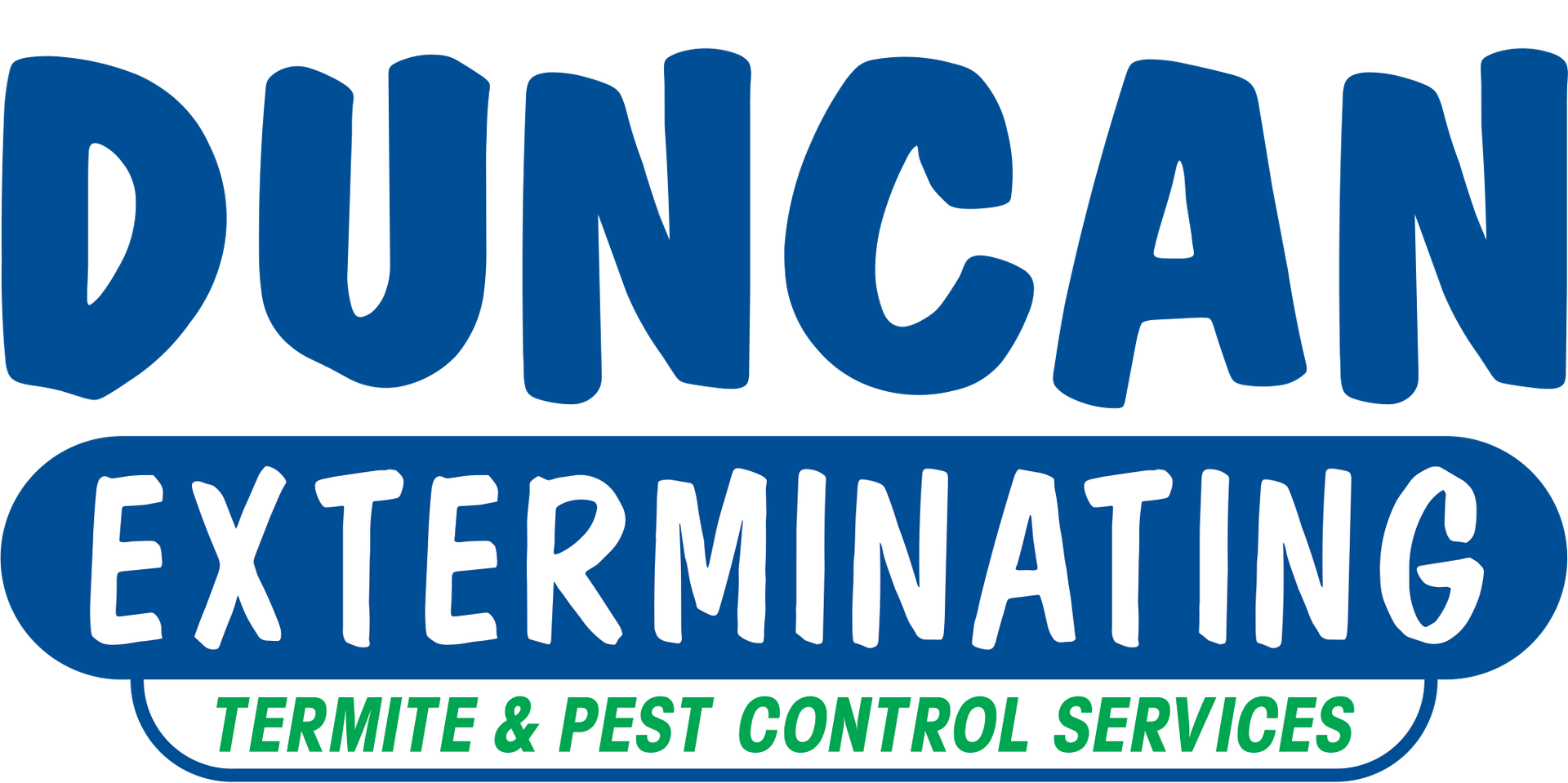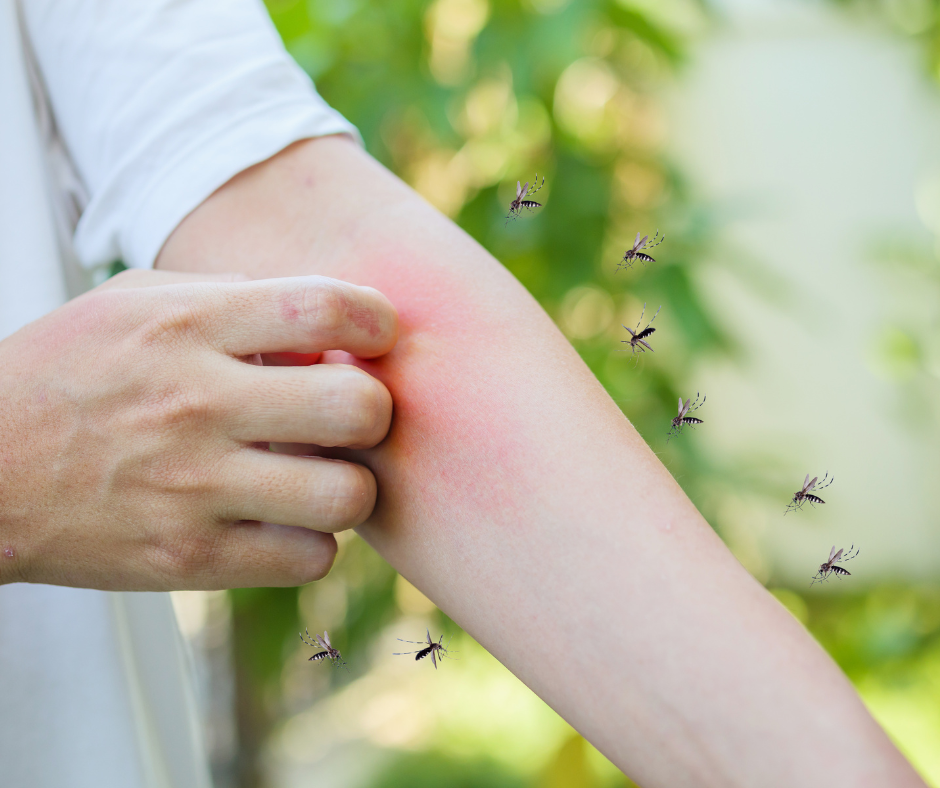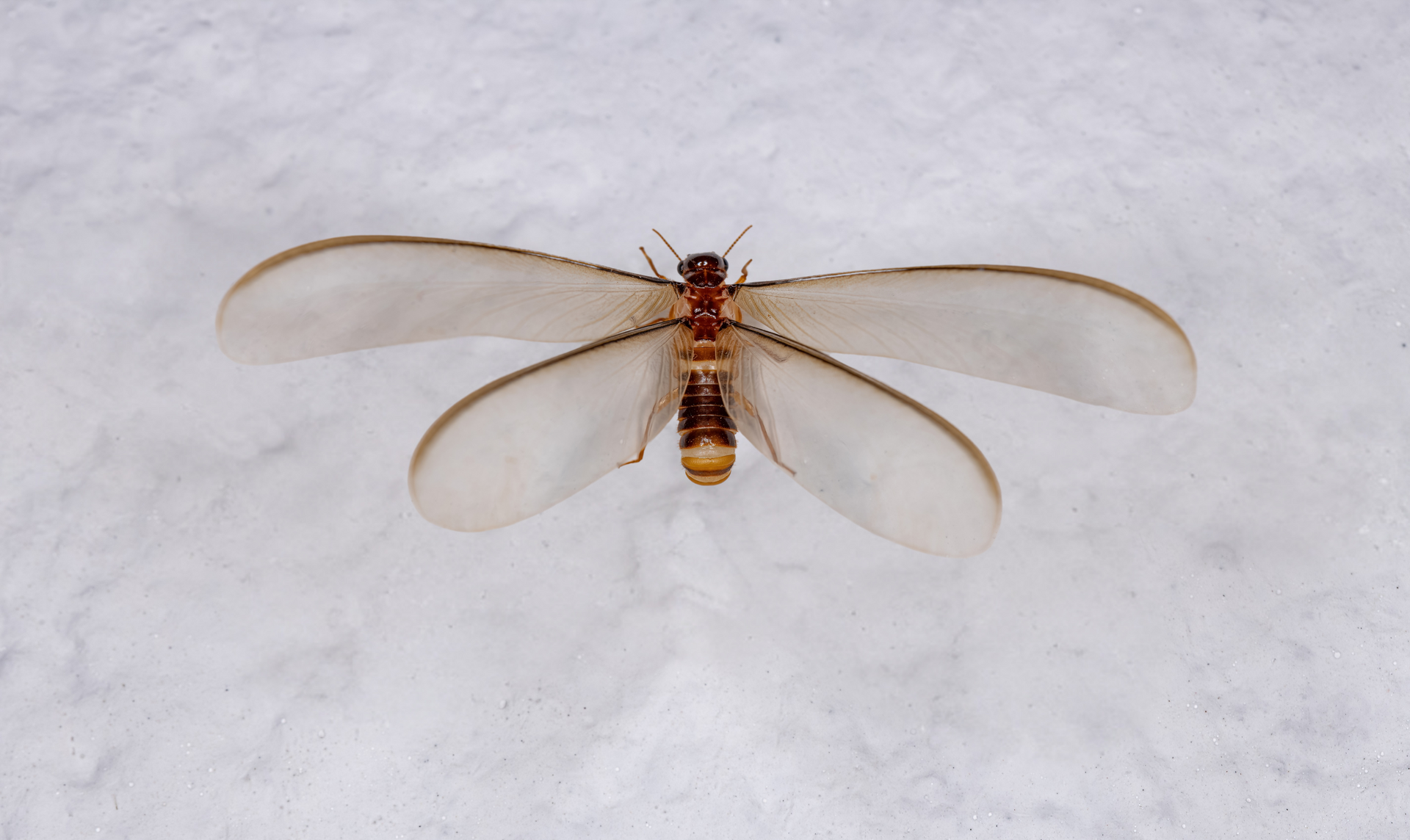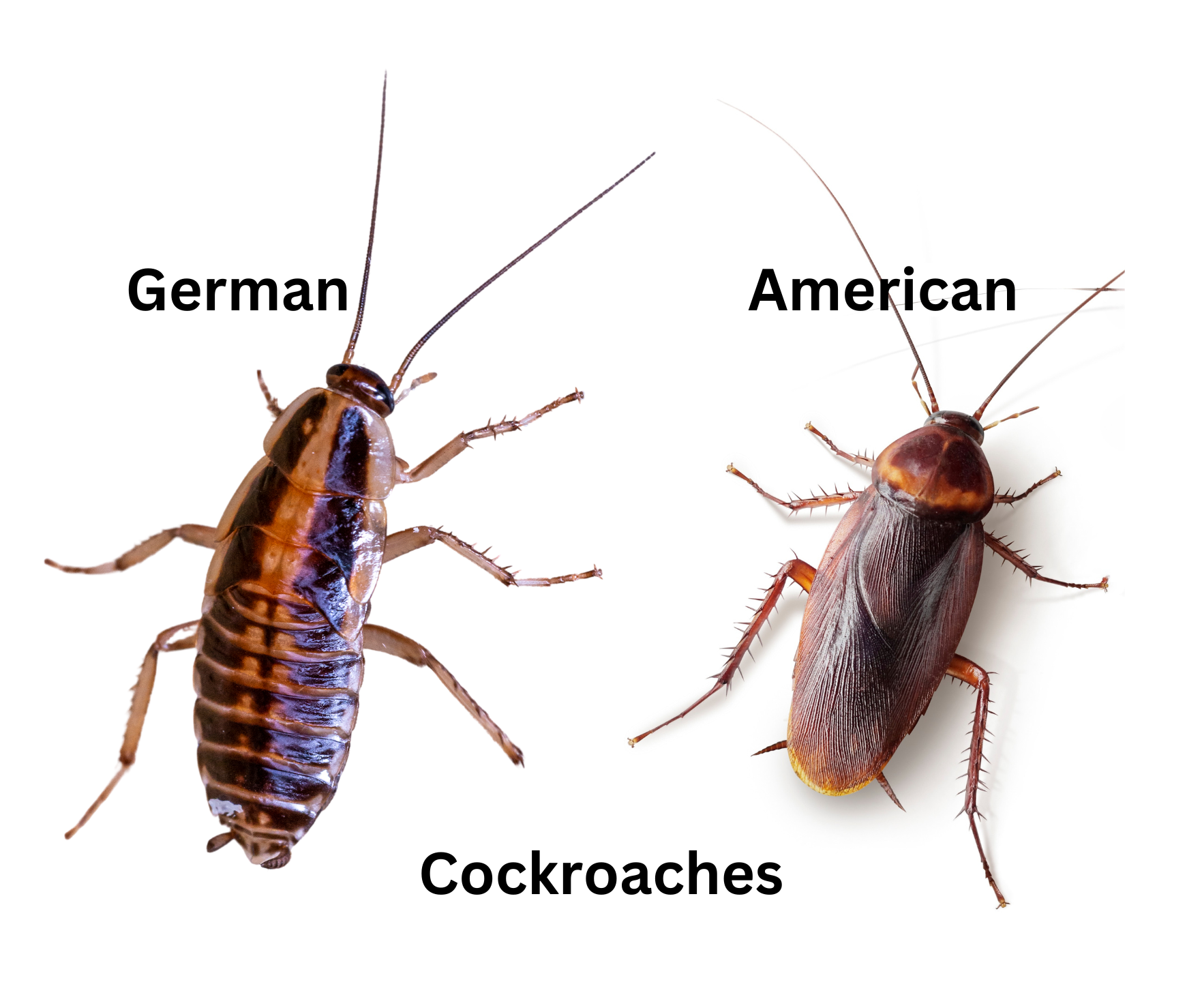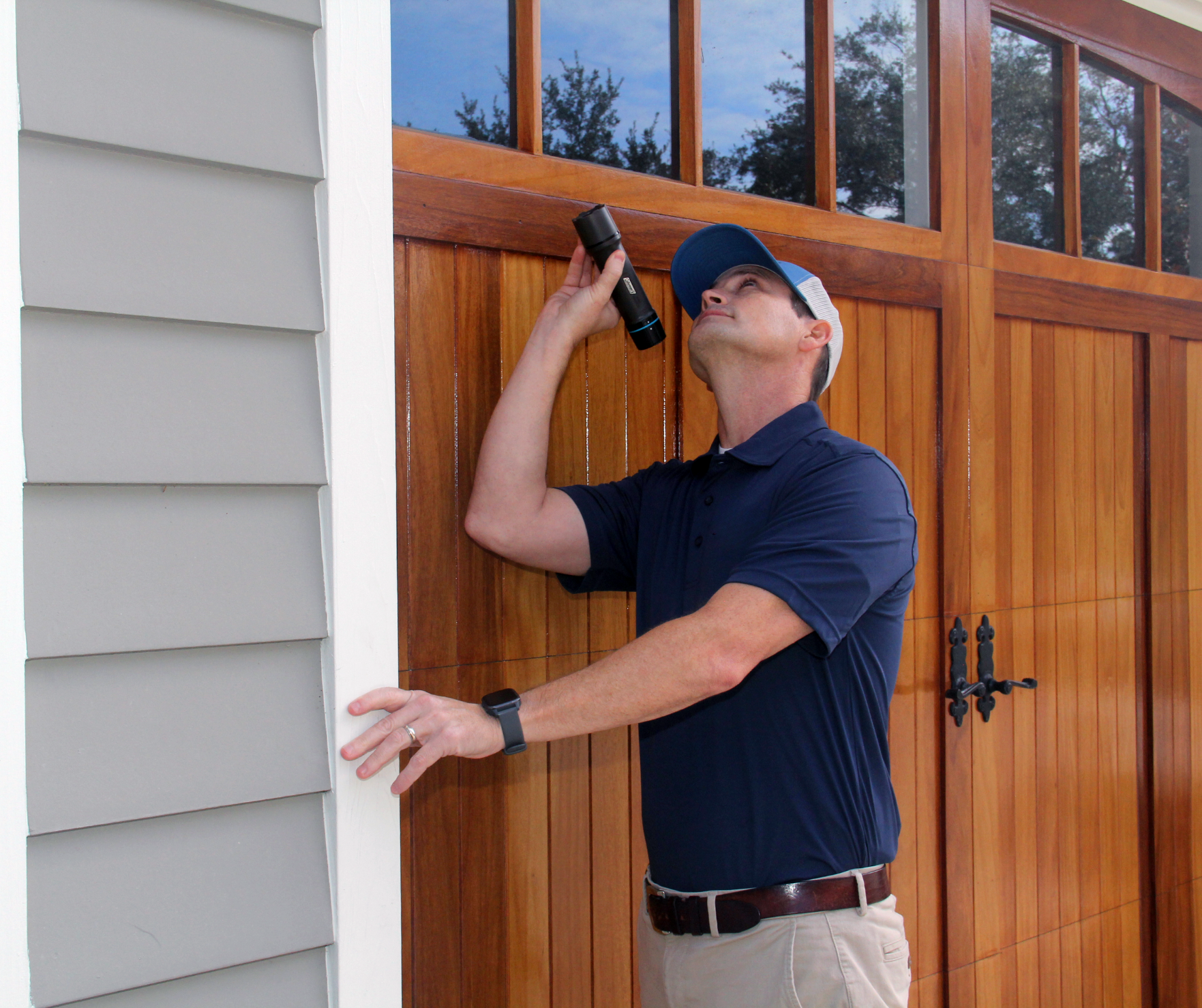Gainesville: 770-536-6734 | Dawsonville: 706-216-1906
Blog Layout
Pest Control Myths Debunked
January 27, 2025
Pest Control Myths Debunked
When it comes to pest control, misinformation is everywhere. From old wives' tales to trendy DIY hacks, homeowners are often left wondering what’s true and what’s just wishful thinking. Unfortunately, falling for these pest control myths can lead to more significant problems, from wasted time and money to worsening infestations.
At Duncan Exterminating, we’ve heard it all regarding pest misconceptions. In this blog, we’re busting some of the most common pest control myths so you can make informed decisions about protecting your home. Let’s dive in!
Myth #1: "If My Home Is Clean, I Won’t Get Pests."
The Truth: While keeping your home clean helps prevent pests, it’s not foolproof. Pests like cockroaches, ants, and rodents are incredibly resourceful and can invade even the tidiest homes. They’re usually attracted to warmth, moisture, and shelter—things every home has, regardless of cleanliness.
For instance:
Cockroaches can survive on tiny crumbs or non-food items like soap and glue.
Rodents are expert climbers who can squeeze through small gaps or cracks, especially when looking for warmth in colder months.
Pro Tip: Maintaining cleanliness helps reduce food and water sources, but professional pest control is essential to keep pests out long-term.
Myth #2: "DIY Pest Control Works Just as Well as Professional Services."
The Truth: DIY pest control offers temporary relief but rarely solves the underlying problem. Over-the-counter sprays and traps often fail to address hidden nests or colonies.
Why DIY falls short:
Most products only kill adult pests, leaving eggs and larvae untouched.
Misidentifying a pest could lead to ineffective treatments.
Pests may develop resistance to some DIY solutions over time.
At Duncan Exterminating, we use advanced techniques and products designed to safely and effectively target pests at every stage of their lifecycle.
Myth #3: "Pests Die-Off in the Winter, So I Don’t Need Pest Control."
The Truth: While pests like mosquitoes slow down during winter, many others—such as rodents, spiders, and cockroaches—actively seek shelter indoors when it’s cold.
Winter pests to watch for:
Rodents: Mice and rats often move inside, where they can damage wiring, insulation, and food storage.
Spiders: Certain species become more active indoors, hunting for insects.
Cockroaches: These pests thrive in warm, dark areas like basements and kitchens, regardless of the season.
Year-round pest control services from Duncan ensure your home stays protected no matter the time of year.
Myth #4: "Bed Bugs Only Infest Dirty Hotels or Homes."
The Truth: Bed bugs don’t care how clean or dirty a space is—they’re equal-opportunity invaders. These pests often travel on luggage, clothing, or used furniture, making them a risk for anyone.
Signs of bed bugs:
Small, reddish bites on your skin.
Tiny black spots (fecal matter) on mattresses or furniture.
Shed skins or live bugs near bedding seams or upholstery.
If you suspect a bed bug infestation, professional treatment is the only way to completely eradicate them.
Myth #5: "Cheese Is the Best Bait for Trapping Mice."
The Truth: Despite what cartoons have led us to believe, cheese isn’t the best bait for catching mice. Rodents prefer high-protein foods like peanut butter, seeds, or even chocolate.
Why cheese isn’t ideal:
It dries out quickly and loses its scent.
It’s less attractive to rodents compared to other options.
At Duncan Exterminating, we use proven trapping and baiting methods to eliminate rodents effectively.
Myth #6: "One Treatment Will Solve My Pest Problem Forever."
The Truth: Pest control isn’t a one-time fix. Pests are persistent; factors like weather, nearby infestations, and home maintenance can cause recurring issues. Regular treatments and inspections are essential for long-term protection.
Our quarterly pest control program protects your home against common pests and prevents their return.
Myth #7: "All Pests Are Harmful to Humans."
The Truth: Not all pests are dangerous. For example, most spiders are harmless and help control other insect populations. However, pests like termites, cockroaches, and rodents can cause damage to your home and health.
When in doubt, it’s best to consult a professional to determine whether treatment is necessary.
Why Professional Pest Control Matters
Debunking these myths highlights one important point: pest control is most effective when left to the professionals. At Duncan Exterminating, we understand the unique challenges homeowners in Gainesville and Dawsonville, GA, face, and we’re here to help.
Here’s what we offer:
Accurate Identification: We identify the pest correctly and create a customized treatment plan.
Safe and Effective Solutions: Our treatments eliminate pests while keeping your family and pets safe.
Ongoing Protection: Our quarterly pest control program ensures your home stays protected year-round.
Specialized Services: We tackle even the most challenging infestations from termites to German cockroaches.
Contact Duncan Exterminating Today!
If you’ve been relying on pest control myths or DIY solutions, it’s time to switch to a trusted solution. Duncan Exterminating has proudly served Gainesville, Dawsonville, Cumming, and the surrounding communities since 1981. Whether you’re dealing with a current infestation or want to prevent future problems, we’re here to help.
Call Duncan Exterminating today to schedule an inspection or learn more about our pest control programs. Don’t let pests take over—let us help you reclaim your home!
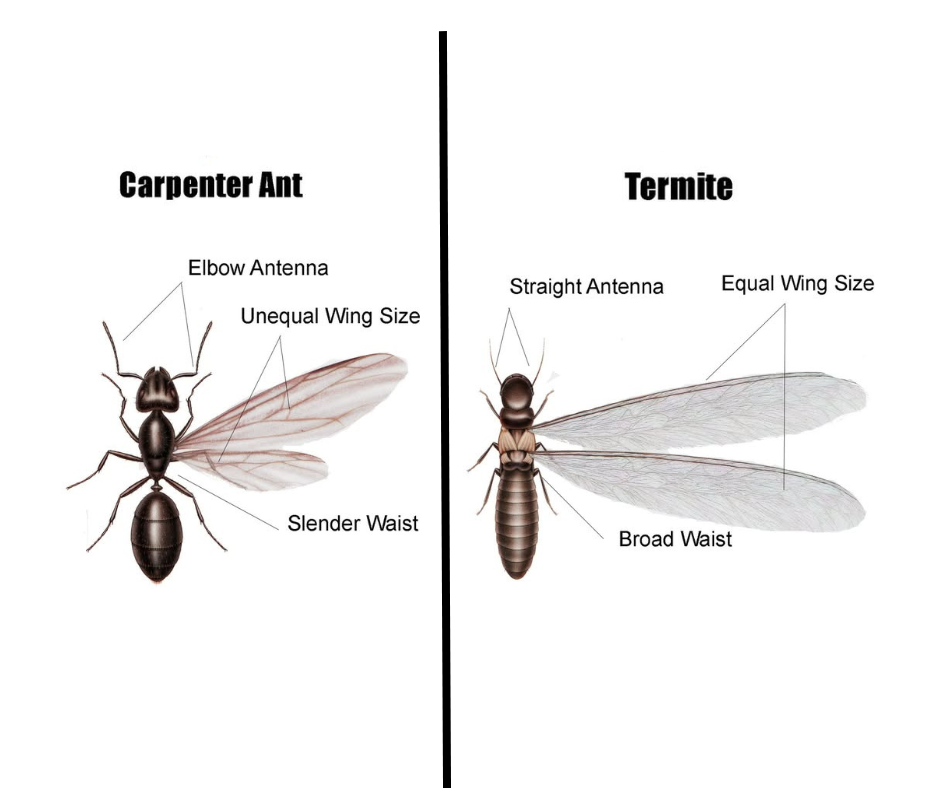
March 31, 2025
When homeowners see swarms of flying insects around their homes, they often assume the worst: termites. However, flying ants (usually carpenter ants in their winged form) can also appear in large numbers, leading to confusion. While both types of insects may look similar, they have key differences that affect the damage they can cause to your home. In this guide, we’ll compare flying ants and termites, helping you understand how to identify them, their behaviors, and the best ways to prevent and control them. Understanding the Difference: Flying Ants vs. Termites Biological Classification Flying Ants belong to the order Hymenoptera (related to bees and wasps) and the family Formicidae. Carpenter ants are a common species that develop wings during their reproductive stage. Termites belong to the order Blattodea (related to cockroaches). Previously, they were in the Isoptera order. Behavioral Differences Colony & Nesting: Termites live in hidden colonies, feeding on wood 24/7. Carpenter ants nest in moist wood but do not eat it; they tunnel through it. Feeding Habits: Termites consume wood and cellulose materials, leading to structural damage. Carpenter ants are omnivores, feeding on sugars, proteins, and insects. Swarming Seasons: Termites swarm in spring, often after rain. Flying ants typically swarm in late spring to early summer. Signs of Flying Ant Infestation Large black or dark brown ants seen indoors (especially at night) Small piles of coarse sawdust (frass) near wooden structures Hollow-sounding or weakened wood Ant trails leading from wood to food sources Signs of Termite Infestation Mud tubes on walls or foundations (subterranean termites) Hollow or blistered wood with maze-like tunnels Piles of small, equal-sized wings near windows or doors Professional termite control is the best solution if you notice signs of a severe infestation. Duncan Exterminating serves Gainesville and Dawsonville with expert identification and treatment for both flying ants and termites. Whether you need preventative measures or targeted treatments, we can help protect your home from costly damage. Schedule Your Inspection Today! Contact Duncan Exterminating for a professional pest assessment and customized treatment plan. Early detection and intervention can save you thousands in repairs! Physical Differences

February 12, 2025
Spring showers bring more than just flowers; they also increase insect activity. If you've ever noticed an uptick in pests right after a heavy rain, you're not alone. Rain can disrupt insect habitats, forcing them to seek shelter, food, and dry ground—often inside homes and businesses. Below, we explore why bugs invade your home after rain and what you can do to keep them out. Why Rain Increases Bug Activity 1. Flooded Nests and Habitats Many insects, like ants, cockroaches, and termites, build their nests in soil or underground tunnels. Heavy rains flood these nests, forcing the pests to relocate to higher, drier ground—like your home. 2. Increased Humidity Certain pests thrive in moist environments. Mosquitoes, silverfish, centipedes, and mold mites multiply when humidity levels rise. Rain increases indoor humidity, making basements, bathrooms, and attics attractive to these pests. 3. Food Sources Are Washed Away Rain disrupts insects’ natural food sources by washing away plant nectar, rotting fruit, and other organic matter. Ants, flies, and roaches may enter homes searching for alternative food sources. 4. Breeding Opportunities for Mosquitoes Standing water left by rain creates the perfect breeding ground for mosquitoes. Even small amounts of water (in clogged gutters, birdbaths, or potted plants) can lead to rapid mosquito infestations. 5. Disrupted Chemical Barriers If you’ve applied pesticides or repellents around your home, heavy rain may wash them away. This leaves your home more vulnerable to pests until treatments are reapplied. Common Pests That Invade Homes After Rain Ants – Seeking dry shelter and food. Cockroaches – Looking for warmth and moisture. Mosquitoes – Breeding in standing water. Termites – More active in damp wood after rain. Spiders – Hunting other insects that have entered your home. Silverfish & Centipedes – Attracted to moisture-rich areas. Earwigs – Seeking dry refuge from flooded soil. How to Prevent Bugs from Entering After Rain ✔ Seal Cracks & Entry Points Inspect windows, doors, and foundation cracks. Apply caulk and weather stripping where needed. ✔ Reduce Moisture Indoors Use dehumidifiers in basements and bathrooms. Fix leaks and improve ventilation. ✔ Eliminate Standing Water Empty outdoor containers that collect rainwater. Clean gutters and drains regularly. ✔ Maintain Your Yard Keep shrubs, bushes, and mulch away from the foundation. Remove debris and damp wood that attract pests. When to Call a Professional If you’re noticing persistent infestations after rain, it might be time to contact Duncan Exterminating. Our local pest control experts can: Identify entry points Apply long-lasting treatments Offer customized pest prevention plans Rain doesn’t just affect your outdoor plans—it can also drive pests straight into your home. Understanding how weather influences pest behavior and taking proactive steps can keep your home bug-free this spring!
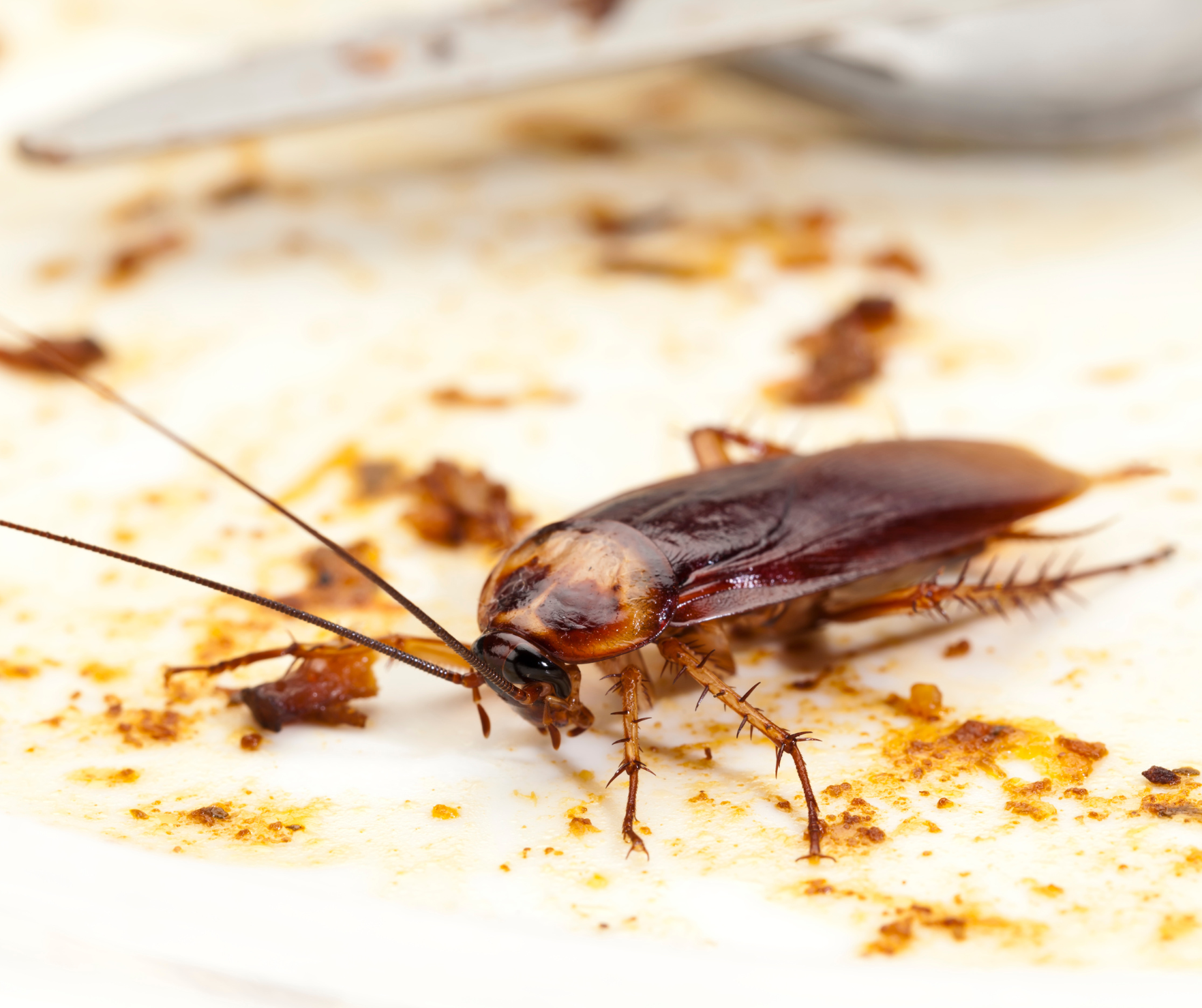
By Tina Brady
•
January 27, 2025
As temperatures fall, it’s easy to assume pests won’t be an issue. However, winter doesn’t necessarily mean a pest-free season. Many pests seek warmth and shelter indoors during colder months, often making homes their refuge. Identifying common winter pests and understanding how to manage them is key to avoiding infestations. With decades of service in Gainesville, Dawsonville, and surrounding areas in north Georgia, Duncan Exterminating provides expert solutions to keep homes protected year-round. Why Pests Are a Problem in Winter While some pests are less active in winter, others stay active by moving indoors. Warmth, food, and shelter make homes an attractive retreat. Entry points like cracks, crevices, or poorly sealed windows and doors allow easy access, leading to unwanted visitors in basements, attics, and kitchens. Common Winter Pests In Georgia 1. Rodents (Mice and Rats) Rodents seek warmth and can squeeze through tiny openings to enter homes. Signs of an infestation include droppings, gnawed materials, and scratching noises at night. Rodents damage insulation and wiring and can spread diseases, making prompt intervention critical. 2. Cockroaches Cockroaches like the American cockroach thrive in warm, humid indoor spaces like kitchens and bathrooms. They pose serious health risks by contaminating food and triggering allergies. 3. Spiders Species like the brown recluse and black widow, common in Gainesville, can pose health risks due to their venomous bites. These spiders often inhabit dark, undisturbed areas in homes. 4. Termites Though less visible during winter, termites can remain active in heated structures. Subterranean termites, in particular, can cause significant structural damage if not detected early. Signs include discarded wings, mud tubes, and hollow-sounding wood. 5. Ants Some ants, like odorous house ants, invade homes during winter in search of food. They are often attracted to sugary or greasy items and nest in walls or near heat sources. 6. Bed Bugs Bed bugs don’t hibernate in winter and can enter homes via luggage, furniture, or holiday decorations. They hide in cracks and crevices near sleeping areas, feeding on humans at night. Signs of a Potential Infestation Watch for these indicators of winter pest problems: Unusual noises, like scratching or scurrying, in walls or ceilings. Droppings, nests, or chew marks in hidden areas. Damaged food packaging or contamination in stored items. Visible pests near entry points like windows or doors. Structural damage, such as holes in wood or insulation. Preventive Tips to Protect Your Home Prevent winter pests by addressing entry points and removing attractants: Seal Entry Points: Inspect and seal gaps around windows, doors, and utility pipes, focusing on the foundation and roofline. Proper Food Storage: Store food in airtight containers and promptly clean up crumbs or spills. Do not leave pet food out overnight. Control Moisture: Use dehumidifiers in damp areas and fix leaks to prevent attracting moisture-loving pests like termites. Regular Cleaning: Declutter and clean areas where pests may hide, such as attics and basements. Maintain Landscaping: Trim trees and shrubs away from your home’s exterior and store firewood away from the structure to reduce pest access points. By staying vigilant and taking proactive steps, you can keep your home pest-free throughout winter. Contact Duncan Exterminating to start living pest-free!
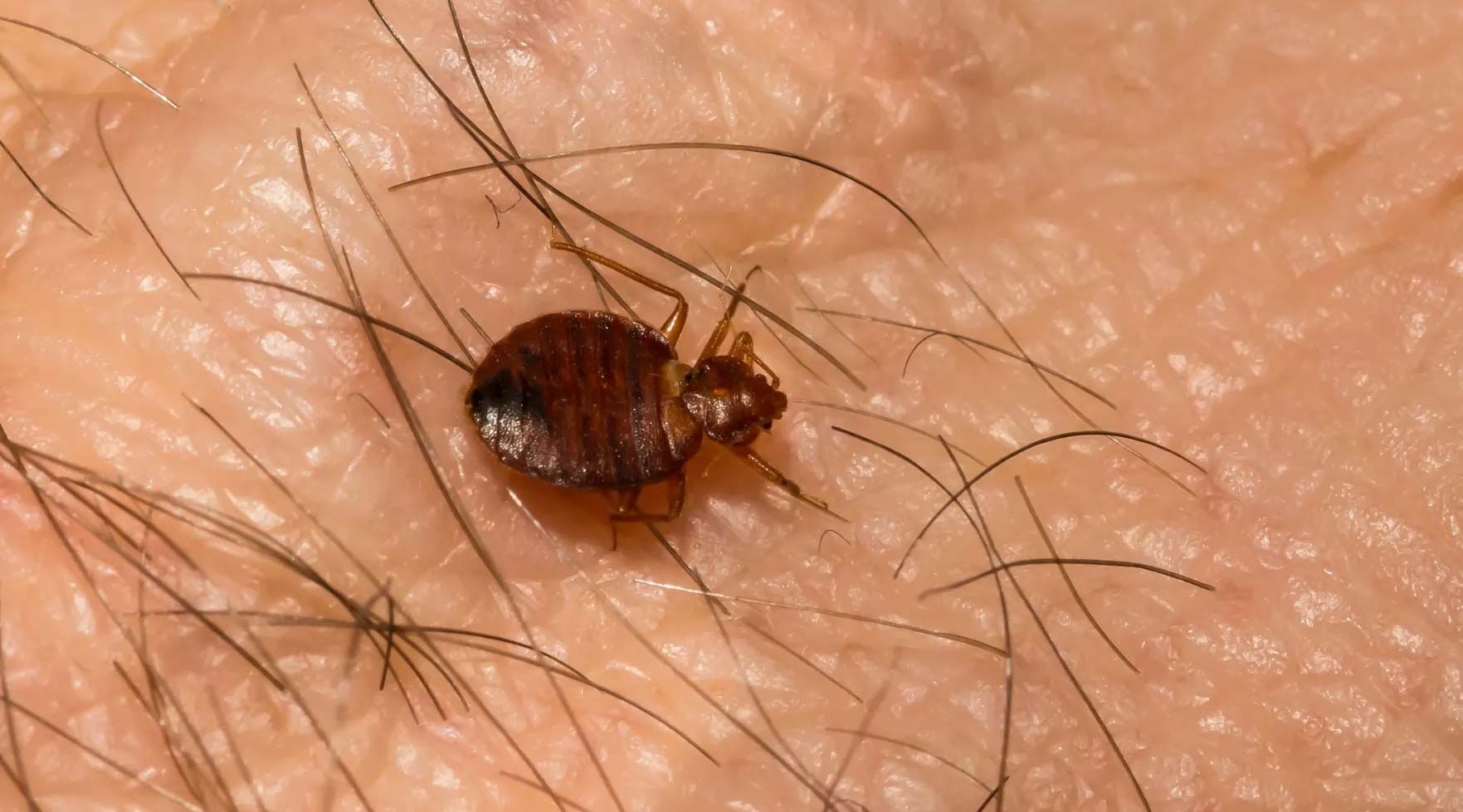
By Tina Brady
•
December 16, 2024
The holiday season is a time for joy, family gatherings, and travel. Unfortunately, it’s also a time when bed bugs can hitch a ride into your home. At Duncan Exterminating, we understand how disruptive a bed bug infestation can be–even one is enough to make most people squeamish. To help you enjoy a stress-free holiday season, we’ve compiled five tips to protect your Gainesville and Dawsonville home from these unwelcome guests. 5 Tips For Keeping Bed Bugs Away This Holiday Season 1. Stay Alert While Traveling Many holiday trips involve staying in hotels, visiting family, or hosting out-of-town guests. Bed bugs are notorious travelers, easily transferring from one location to another via luggage, clothing, or personal items. Tips to Keep Bed Bugs Away: Inspect Hotel Rooms: Before settling in, inspect your area for signs of bed bugs. Check the seams of mattresses, box springs, headboards, and upholstered furniture for dark spots, shed skins, or live bugs. Use Luggage Stands: Keep your suitcase off the bed and floor by using a luggage stand. This minimizes the chance of bugs crawling into your belongings. Seal Your Belongings: Pack clothes in resealable plastic bags to create an extra barrier against unwanted bed bugs. 2. Check and Protect Your Luggage After Traveling Once your trip is over, taking a few precautionary steps can help ensure you don’t accidentally bring home any unwanted guests. Steps to Follow: Unpack in a Safe Zone: Avoid unpacking in bedrooms or on furniture. Instead, use a garage, laundry room, or other easily sanitized area. Launder Immediately: Wash all clothes, even unworn items, in hot water and dry them on the highest heat setting. Heat is a proven method for killing bed bugs and their eggs. Vacuum Your Suitcase: Use a vacuum to clean your luggage thoroughly, paying special attention to seams and pockets. Dispose of the vacuum bag immediately in an outdoor trash can. Consider Luggage Covers: Investing in bed bug-proof luggage covers can provide an added layer of protection during your travels. 3. Be Cautious When Hosting Guests Holiday gatherings often mean opening your home to friends and family. While it’s a season of sharing, bed bugs are one thing you don’t want to share. Best Practices for Hosts: Provide a Clear Storage Area: Encourage guests to keep luggage off beds and couches by offering a designated space for their belongings. Inspect Linens After Guests Leave: Inspect guest beds and furniture once your visitors depart for signs of bed bugs. Vacuum Common Areas: Thoroughly vacuum any spaces where guests stay. Pay close attention to the seams of furniture and baseboards. 4. Shop Smart During the Holidays Bed bugs can also hitch a ride on secondhand or new items, especially furniture or clothing purchased from thrift stores, yard sales, or even major retailers. Prevention Tips: Inspect Secondhand Items: Carefully examine used furniture, clothing, and other items for signs of bed bugs before bringing them into your home. Sanitize New Purchases: Wash new clothes in hot water and vacuum furniture to eliminate potential unwanted holiday pests. 5. Know the Signs of a Bed Bug Infestation Despite your best efforts, it’s important to recognize the early signs of a bed bug problem. Catching an infestation early makes treatment more manageable. Key Indicators: Small, rust-colored spots on sheets or mattresses Shed skins or tiny eggs in furniture seams Red, itchy bites on exposed skin, often in a linear pattern When to Call Your Local Pest Control Experts If you suspect a bed bug problem in your home, don’t wait. Duncan Exterminating identifies and treats bed bug infestations with effective solutions. Our experienced team ensures your home remains a sanctuary during the holiday season. Why Choose Us? Locally trusted pest control experts Comprehensive bed bug inspections and treatments Friendly and reliable service tailored to your needs Enjoy a Bed Bug-Free Holiday The holidays are meant for making memories, not worrying about pests. Follow these tips to protect your home, and if you need a hand, call Duncan Exterminating. We’re here to help you enjoy the season stress-free. Contact us today to schedule an inspection or learn more about our bed bug prevention services. Here’s to a happy, pest-free holiday season!

December 11, 2024
When it comes to safeguarding your home from unwanted pests, no single solution fits every situation. At Duncan Exterminating, we’ve perfected a proven approach that blends modern science, environmental awareness, and practical techniques to keep your home pest-free. This method, known as Integrated Pest Management (IPM), is designed to provide effective results while prioritizing your family and the environment. Let’s dive into IPM, why it’s important, and how our pest control services in Gainesville and Dawsonville, Georgia, can help protect your home. What Is Integrated Pest Management (IPM)? Integrated Pest Management, or IPM, is a holistic and sustainable approach to pest control. Unlike traditional methods that rely heavily on routine pesticide use, IPM combines prevention, monitoring, and targeted treatments to address pest problems effectively. It emphasizes understanding pest behavior, eliminating conditions that attract pests, and using eco-friendly control techniques when necessary. The ultimate goal of IPM is not just to eliminate pests temporarily but to provide long-lasting protection by addressing the root causes of infestations. Why Integrated Pest Management Is the Smart Choice Integrated Pest Management offers numerous advantages over conventional pest control. First and foremost, it’s better for the environment. IPM minimizes harm to beneficial insects, wildlife, and local ecosystems by focusing on non-chemical strategies and using pesticides only when necessary. It also provides tailored solutions to meet the unique needs of each North Georgia property. Rather than applying a “one-size-fits-all” approach, IPM strategies are customized based on the type of pests present, the level of infestation, and the layout of your home or business. Another key benefit is its focus on long-term results. Instead of relying on quick fixes, IPM tackles the underlying causes of pest problems, such as entry points, food sources, or moisture issues. This reduces the likelihood of recurring infestations. Finally, IPM is a safer option for your family and pets, significantly reducing the need for chemical treatments inside your home. How Duncan Exterminating Applies IPM Principles At Duncan Exterminating, we’ve designed our quarterly pest control treatments to be the cornerstone of effective and sustainable pest management. These proactive treatments focus on prevention and early intervention to stop pest problems before they escalate. Each visit includes a thorough exterior inspection of your property, identification of potential pest entry points, and application of eco-friendly, family, and pet-friendly targeted treatments. Our IPM approach doesn’t stop at one treatment. By spacing visits throughout the year, we address seasonal pest pressures that vary with Georgia’s climate. For example, during spring and summer, we focus on pests like ants and mosquitoes, while fall and winter bring increased attention to mice and spiders seeking shelter indoors. This comprehensive strategy ensures your home is continuously protected against various pests. One of the most valuable aspects of our service is our free re-treatment policy. If pests are seen between your regularly scheduled visits, call us, and we’ll return to re-treat your property at no additional cost. This guarantee provides peace of mind, knowing that we’re committed to keeping your home pest-free every day of the year. Our mosquito control services utilize an IPM approach to address mosquito infestations' causes and symptoms. We stop mosquitoes at their source by identifying and eliminating breeding sites like standing water. We complement this with targeted treatments that effectively reduce mosquito populations, allowing you to enjoy your outdoor space. We take a comprehensive approach for termites that combines monitoring, baiting systems, and preventive barriers. Our termite control strategies ensure your property’s structure is fully protected from these destructive pests. Similarly, our bed bug control services use a mix of heat treatments and precise applications to eradicate infestations without exposing your family to unnecessary chemicals. Whether you’re dealing with rodents, stinging insects, or other wildlife, our specialized pest solutions adapt to your unique situation while maintaining IPM’s principles of safety and sustainability. Pest Control Solutions Protecting your home from pests requires a thoughtful, effective, and sustainable approach, which Duncan Exterminating delivers with our Integrated Pest Management (IPM) services. We provide long-lasting pest control solutions by combining prevention, monitoring, and targeted treatments. Our quarterly treatments ensure year-round protection, with the added assurance of free re-treatments if pests appear between visits. Contact Your Local Pest Control Company Whether you’re battling mosquitoes, termites, bed bugs, or seasonal invaders, our tailored IPM strategies address the root causes of infestations, offering peace of mind and a pest-free home. Serving north Georgia, including Big Canoe, Dawsonville, Cumming, Gainesville, and the surrounding areas, Duncan Exterminating is your trusted partner for reliable, eco-friendly pest control. Contact us today to learn how we can help protect your property with proven IPM techniques.

October 14, 2024
As the weather cools in North Georgia, homeowners should be prepared for pests looking to enter their homes for warmth and shelter. Fall is a critical time for pest prevention. Common pests, including mice, rats, cockroaches, and spiders, begin seeking places to overwinter. These pests can cause significant issues inside your home without the proper preventive measures. At Duncan Exterminating, we provide expert advice to help you keep your home pest-free this fall and year-round. Here’s how to protect your home from fall pests and ensure they don’t stick around for the winter. Why Fall Is Key for Pest Prevention When fall arrives, many pests become more active in their search for a warm place to hide from the colder months ahead. With its cracks and crevices, your home can be an inviting spot for these pests to settle. Sealing these entry points and taking preventive action during the fall can significantly prevent pest problems later in the year. Rodents: Mice and Rats on the Move Rodent Behavior in the Fall Mice and rats become more active, searching for food, water, and warmth, as temperatures drop in the fall and winter. These rodents can enter your home through the smallest gap, causing significant damage by chewing through wires, insulation, and walls. Additionally, rodents carry diseases that can be dangerous to your family. Rodent Prevention Tips Seal Cracks and Gaps : Check your home’s exterior for any small openings where rodents might enter. Mice can fit through holes as small as a dime . Seal these gaps with caulk, steel wool, or weather-stripping to keep them out. Remove Food Sources : Store all food, including pet food, in airtight containers, and avoid leaving food out overnight. Clean up crumbs and spills promptly. Trim Vegetation : Keep trees and shrubs trimmed away from your house. Overhanging branches give rodents easy access to your roof, where they can enter through vents or chimneys. Cockroaches: Sneaky Fall Invaders Why Cockroaches Seek Shelter Indoors Cockroaches, especially American cockroaches, thrive in warm, moist environments of North Georgia. When outdoor temperatures begin to cool, they seek out homes to find food and shelter. Cockroaches can contaminate food and trigger allergic reactions, making them a serious health risk. Cockroach Prevention Tips Eliminate Moisture : Cockroaches are attracted to damp areas. Fix any leaks in your plumbing, particularly in kitchens and bathrooms. Also, consider using a dehumidifier in basements and crawl spaces. Keep Your Home Clean : Maintain a clean kitchen and dining area, ensuring no food particles that might attract cockroaches are left behind. Sweep and vacuum regularly, paying extra attention to corners and underneath appliances. Seal Cracks and Crevices : Cockroaches can slip through the smallest openings. Seal gaps around windows, doors, pipes, and vents to keep them from sneaking in. Spiders: Eight-Legged Guests You Don’t Want Indoors Why Spiders Enter Homes in the Fall Spiders typically move indoors during the fall to escape the cold and find food. While most house spiders are harmless, their webs and presence can be a nuisance. More concerning, their presence often indicates other pest activity since spiders prey on insects. Spider Prevention Tips Clear Webs : Regularly removing spider webs from around windows, corners, and ceilings discourages spiders from returning. Declutter Storage Areas : Spiders love to hide in dark, cluttered spaces like basements, garages, and attics. Keep these areas tidy and organized to reduce hiding spots. Check for Cracks : Like rodents and cockroaches, spiders can enter through small gaps in your home’s foundation, windows, and doors. Seal these areas to prevent entry. Year-Round Pest Prevention Tips While fall is a critical time for pest control, maintaining a pest-free home requires consistent effort throughout the year. Here are some year-round tips to keep your Gainesville home safe from pests: 1. Regular Inspections Fall and Winter : Focus on sealing entry points and watching for signs of rodents, spiders, and cockroaches. Regular inspections help you catch infestations early, preventing them from getting worse. Spring and Summer : During the warmer months, pests like ants, termites, and mosquitoes become more active. Regular inspections can catch early signs of these infestations before they become significant problems. 2. Control Moisture Many pests, such as termites, cockroaches, and mosquitoes, are drawn to moisture. Ensure your home has proper drainage, repair leaky pipes, and consider using dehumidifiers in damp areas. 3. Keep Your Home Clean A clean home is less inviting to pests. Regularly vacuum, sweep and wipe down surfaces. Avoid leaving dirty dishes in the sink or food out on the counters. 4. Yard Maintenance Overgrown vegetation can provide shelter for pests and make it easier for them to enter your home. Keep bushes, trees, and shrubs trimmed back, and remove leaf piles or debris that could serve as hiding spots for rodents or insects. 5. Work with a Professional Pest Control Company While DIY pest control can be effective for some situations, having a professional pest control company like Duncan Exterminating on your side ensures comprehensive protection. We offer pest control plans tailored to your home’s needs, providing year-round protection from various pests. Conclusion: Protect Your Home from Fall Pests As the weather cools down in north Georgia, don’t wait for pests to invade your home. Take preventive steps this fall by sealing cracks, eliminating moisture, and maintaining a clean environment to keep rodents, cockroaches, and spiders at bay. By following these seasonal pest control tips and implementing year-round prevention strategies, you can protect your home from unwanted intruders all year. For comprehensive pest control services, contact Duncan Exterminating today. Our team of experts is ready to help you keep your home safe and pest-free.
HOW CAN WE HELP YOU?
Contact Information
Dawsonville, GA, Location:
256 Beartooth Pkwy. Dawsonville, GA 30534
Gainesville, GA, Location:
3510 Thompson Bridge Rd. Gainesville, GA 30506
Content, including images, displayed on this website is protected by copyright laws. Downloading, republication, retransmission or reproduction of content on this website is strictly prohibited. Terms of Use
| Privacy Policy
